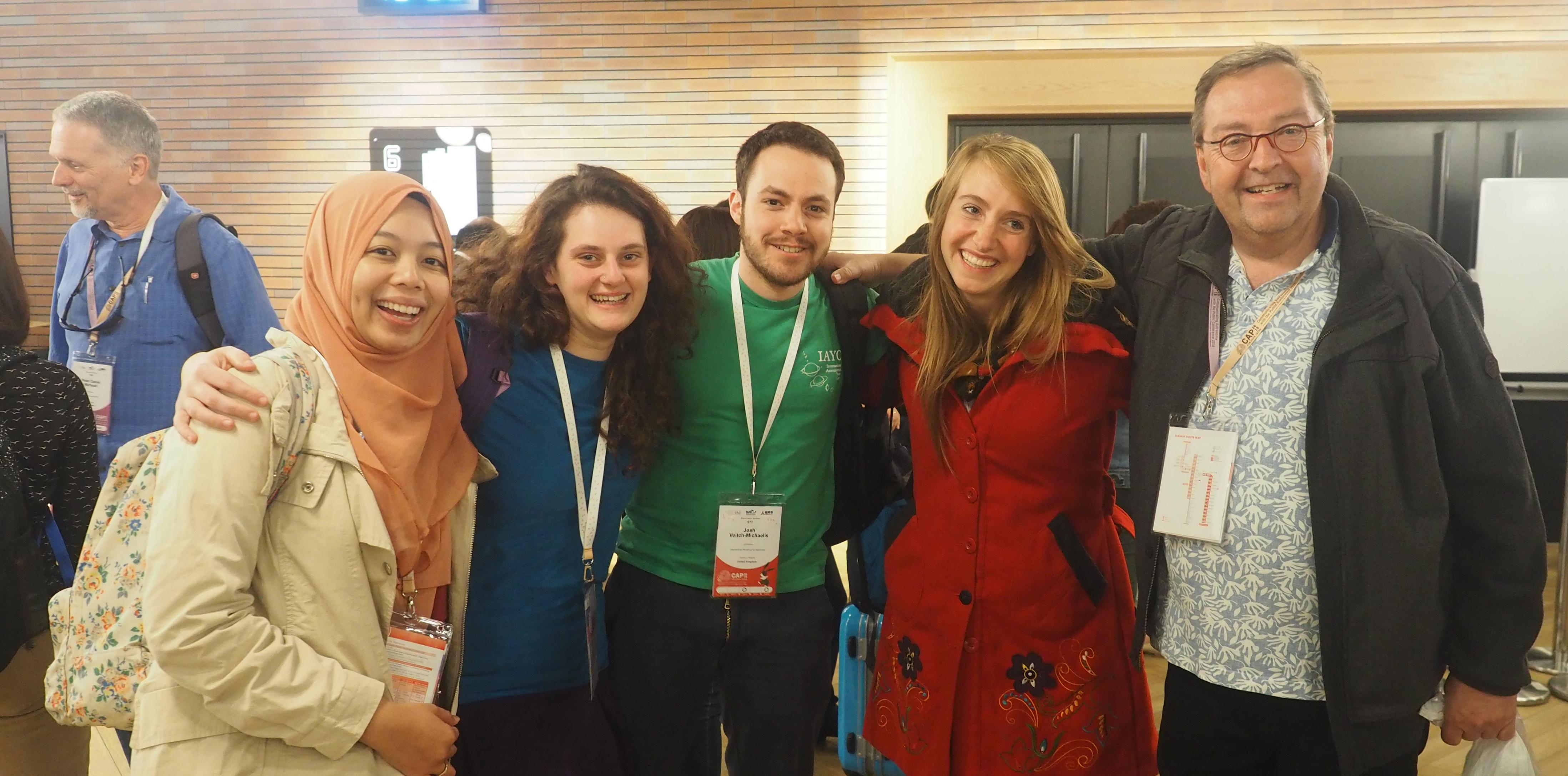Article Main Body

Hannah (second from left) and other CAP delegates
Image Credit: Josh Veitch-Michaelis
Hannah Dalgleish won an RAS Grant to attend the 8th Communicating Astronomy to the Public (CAP) conference at the The Fukuoka City Science Museum in Japan – and was exceptionally lucky that the cherry blossom (sakura) came a week early!
The conference last March was the 8th and largest CAP, with almost 450 delegates of 53 nationalities. Hannah Dalgelish attended thanks to an RAS Grant for conference attendance. Two of five plenary lectures stood out in particular. Prof. Hitoshi Murayama explained how he conveys complicated topics to the public, for example, light years: “if aliens from Andromeda were looking at Earth right now, they would see the Neanderthals” [although technically it would be the Homo habilis]. Prof. Dominique Brossard touched on fake news and why people share it: either because it matches our worldview; gives us hope; or it’s funny.
A keynote lecture by Elizabeth Tasker – based at JAXA – also stood out: scientists need to be more careful when explaining science. The habitable zone is often defined incorrectly; overly complicated and messy explanations given by scientists leads to confused and often erroneous descriptions in the media. Either rename the habitable zone (e.g. temperate zone) or re-emphasise that the habitable zone only applies to Earth-like planets.
CAP offered a full day of workshops – although it was impossible to choose only 4 out of the 20 offered. I loved Marja Seidel’s workshop on communicating astronomy interactively through comics. Henrietta Leavitt and Edwin Hubble were brought to life as we learned the history of their important astrophysical discoveries, and then we got to create our own comic (my group explained why Pluto is no longer a planet).
My talk was on the final day, “Lessons learned from 50 years of the International Astronomical Youth Camp”. I described our current challenges and recent survey results. I received many useful questions and comments, and people were also excited at the thought of encouraging their students to apply.
CAP was a perfect opportunity to share how we communicate astronomy differently (no lectures, exams, or internet), learn from other organisations, and make invaluable connections for the future. Another passion of mine is the use of astronomy to promote peace. I attended talks about Galileo Mobile and Columba-Hypatia which are organisations doing this in remote locations. I also met Mike Simmons, the founder of Astronomers Without Borders. We discussed the conflict in the Middle East and previous efforts trying to bring people together via astronomy. I greatly benefited from these discussions; improving upon my ideas for future projects – stay tuned for developments!
Overall, CAP was a tremendous success, overflowing with enthusiastic people eager to learn and work with one another. I can’t wait to see what new ideas and projects blossom as a result of this conference – I am sure there will be many – and I certainly hope to attend again in the future.

